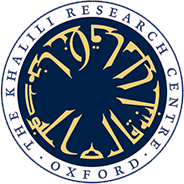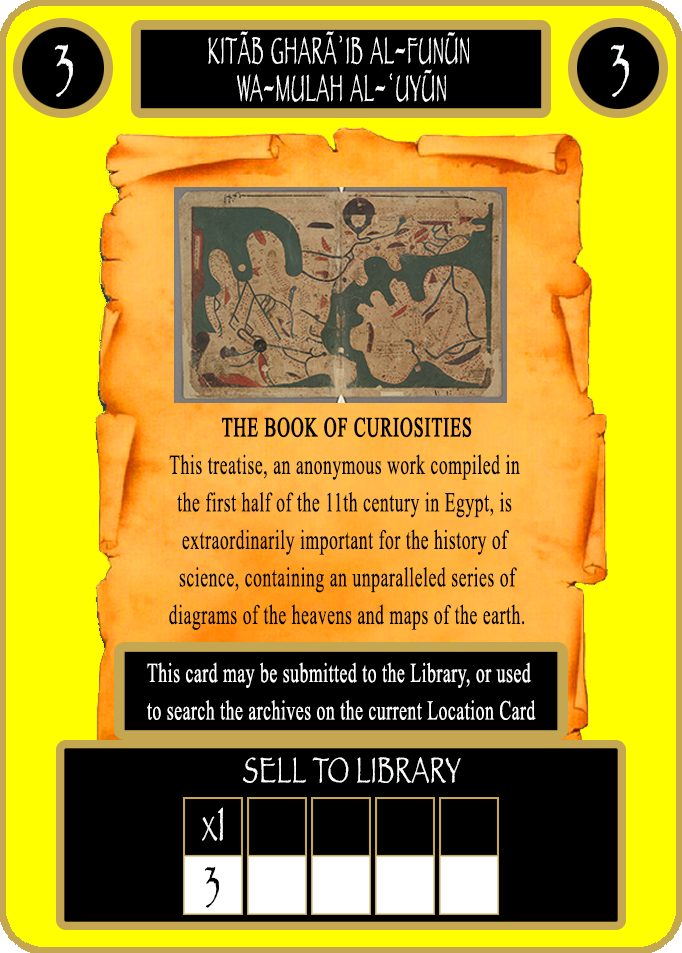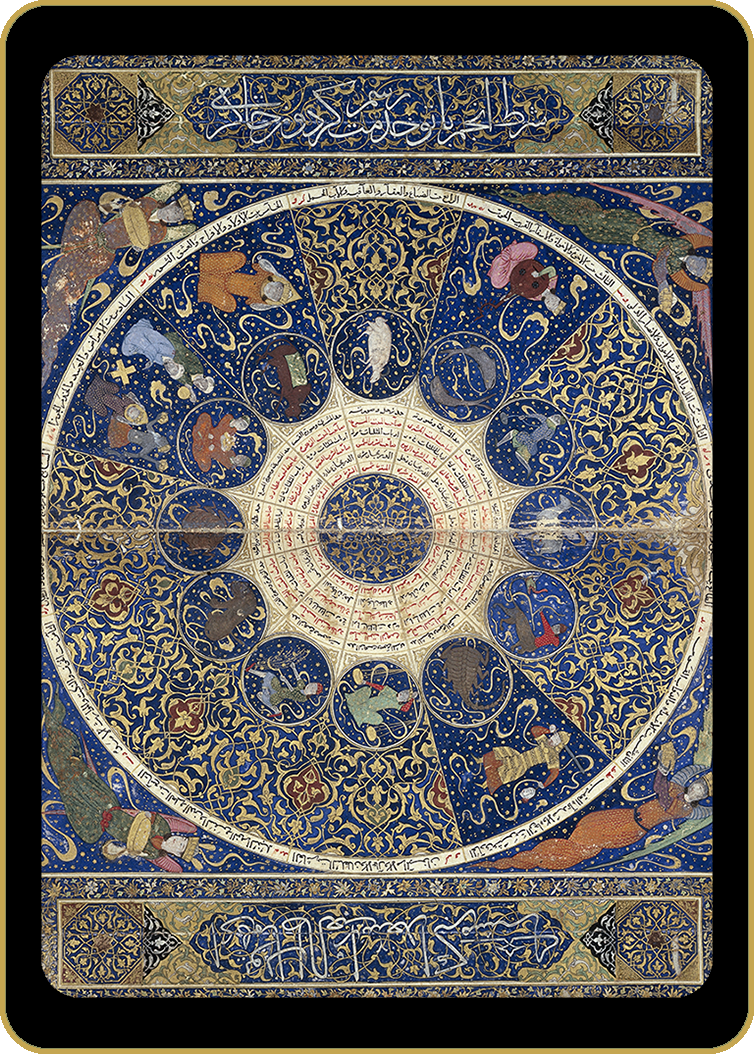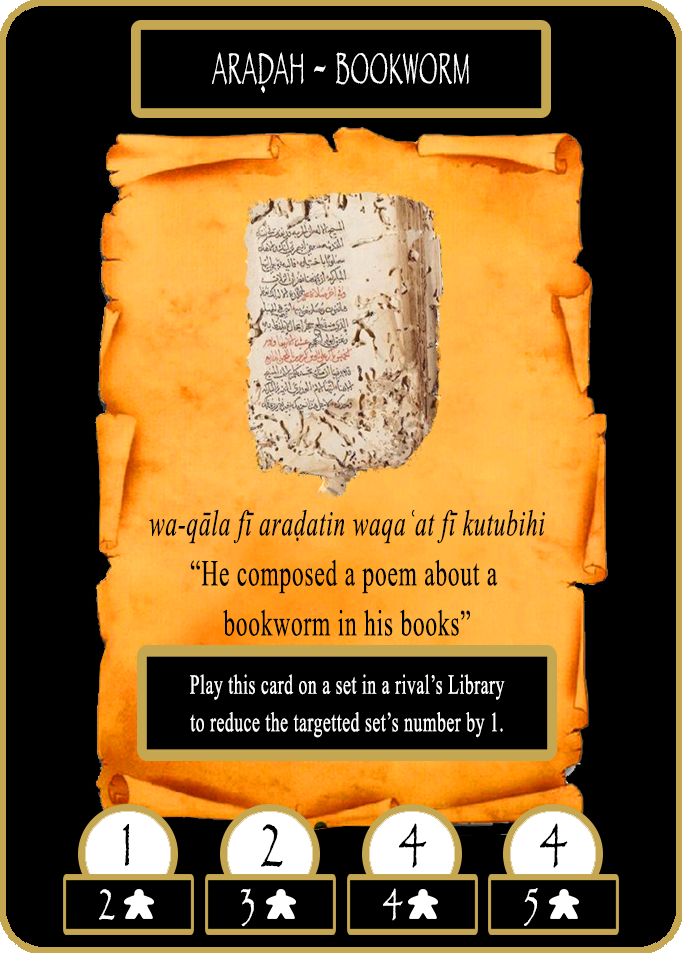
al-kitāb was the first game developed by the project team, and is based on "Archaeology", a card game designed by Phil Walker-Harding. This is a set collection game, similar to whist or other traditional card games, and the theme for the game is centred on manuscript collection.
The game is set in Cairo in 1284 and tasks 2 to 5 players with taking on the roles of medical students trying to gather the most prestigious collections of manuscripts for the library of the newly-built Mansuri Hospital. Players will scour the royal archives, purchase manuscripts from the central bazaar, and visit other libraries and institutions in other cities and countries in their quest to build up the most impressive collections for the hospital library. However, such endeavours will not be without a degree of peril and uncertainty – fire and flooding are ever-present threats to collections of manuscripts, be they in the hands of the students, or in the stalls of the bazaar; bookworm can render even the most impressive manuscript useless; thieves may steal your hard-sought treasures; and the Mongol hoard, having conquered Baghdad in 1258, have turned their attentions to Egypt and neighbouring Syria.
Nine important manuscripts from the period are used in the game:
|
The Almanac of Health Kitāb Taqwīm al‑Siḥḥah |
According to Ibn Butlan's Taqwim al-Sihhah, the maintenance of good health is dependent on six elements: the quality of air; healthy eating and drinking habits; exercise and rest; the balance of the humours; and the moderation of joy, anger, fear, and distress. | |
|
The Book of Curiosities Kitāb Gharāʾib al-funūn wa-mulaḥ al-ʿuyūn |
This treatise, an anonymous work compiled in the first half of the 11th century in Egypt, is extraordinarily important for the history of science, containing an unparalleled series of diagrams of the heavens and maps of the earth. | |
|
The Canon of Medicine al-Qānūn fī aṭ-Ṭibb |
This treatise, written by Ibn Sina (980-1037), took more than a decade to complete. A Latin version was used in European universities (where the author was known as Avicenna) until the 18th century. It is divided into five books. | |
|
The Complete Book on the Medical Art Kāmil al-ṣināʻa al-ṭibbīya |
This treatise was written by Iranian physician, 'Ali ibn al-'Abbas al-Majusi during the 10th century. He dedicated the book to king 'Adud al-Dawla, whom he was serving at the time. This book was considered one of the most necessary texts for medical students of that era, and was partially translated to latin in 1089 and widely circulated in Europe. | |
|
The Comprehensive Book on Medicine al-Kitāb al-Hawī |
Abu Bakr Muhammad ibn Zakariya al-Razi's treatise is not a formal medical encyclopaedia, but includes knowledge gathered from other books, alongside observations based on al-Razi's clinical experience. It was translated into Latin in 1279 under the title Continens. | |
|
The Management of an Apothecary's Shop Minhāj al-Dukkān |
Written in Egypt by the Jewish druggist al-Kuhin al-Attar al-Israili in around 1260, this treatise contains more than 1200 recipes for 17 different types of pharmaceutical preparations, along with chapters on weights and measurements. | |
|
The Method of Medicine al-Kitāb al-Tasrif |
Written in around 1000AD near Cordoba in al-Andalus by Abu'l Qasim al-Zahrawi (Abulcasis), this treatise covers every aspect of medicine, including the design and manufacture of surgical tools. al-Zahrawi was also a pioneer in the use of drugs in psychotherapy. | |
|
On the Prevention of Bodily Ills in Egypt al-Kitāb fi hilat dafʿ madarr al-abdan bi-misr |
This treatise was written by Abu'l Hassan Ali ibn Ridwan Al-Misri, a self-taught physician and practicing astrologer who died in around 1068. The book concerns illnesses and complaints that were peculiar to Egypt, due to its climate, and how to avoid or cure them. | |
|
The Regimen of Health al-Kitab fi Tadbir al-Sihhah |
Musa ibn Maymun (Maimonides) wrote this treatise in 1198 for the Egyptian sultan Afdal Nur al-Din Ali, the eldest son of Saladin, who suffered from attacks of depression accompanied by physical symptoms. Maimonides teaches that physical convalescence is dependent on psychological well-being and rest. |
|
PLAY ONLINE: al-kitab is available for Tabletop Simulator on Steam for Windows or Mac computers. You can download the game from the following url: https://steamcommunity.com/sharedfiles/filedetails/?id=1975487865 |
|
|
|
HOW TO PLAY: An instructional video on how to play the game, in two parts, can be viewed below: (part two) |
||
|
DOWNLOAD THE RULEBOOK: FORTHCOMING |
||






